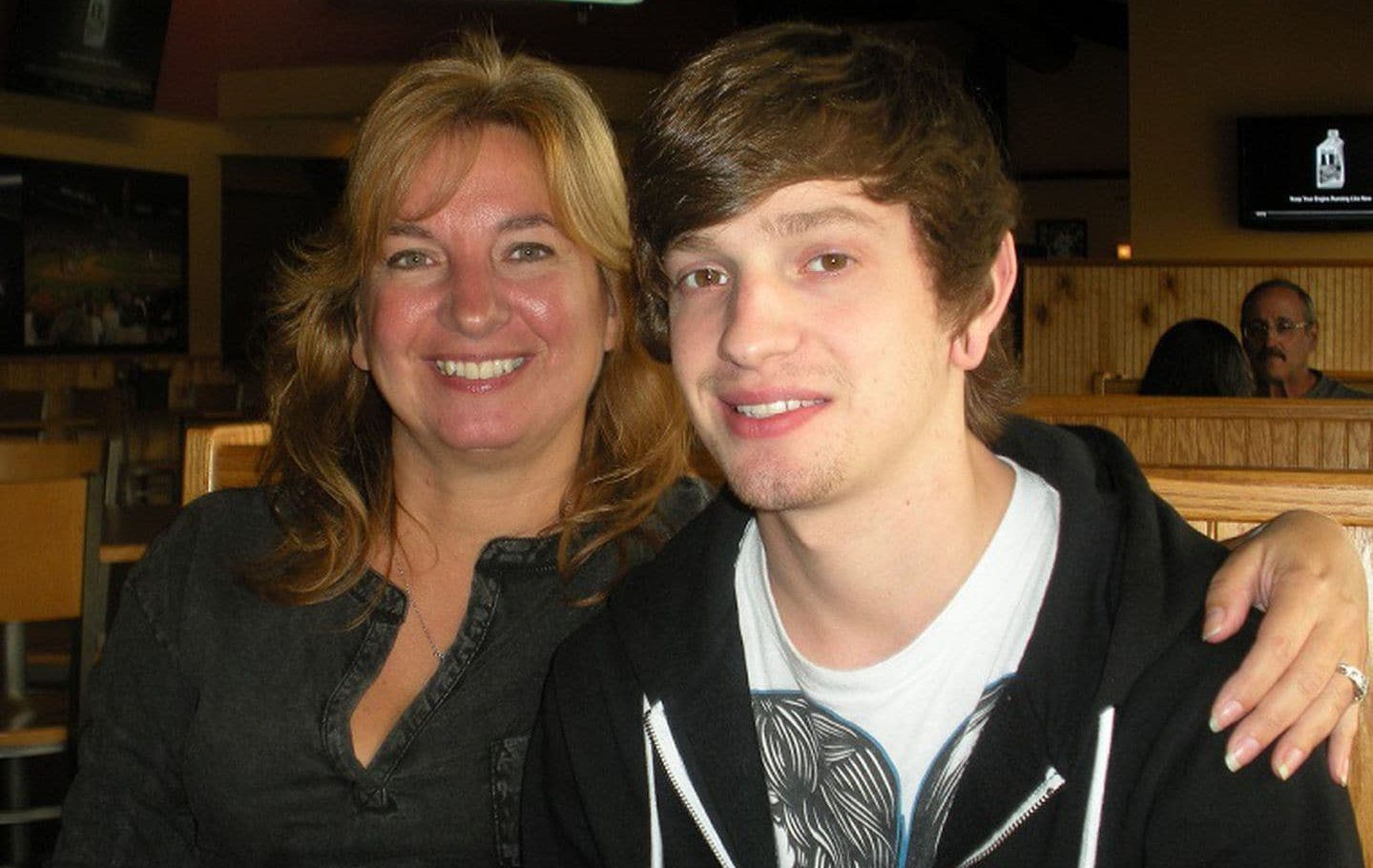MaryBeth Moore Zocco used to send her son, Ryan Moore, care packages.
Last December, days before Moore, 25, died from an overdose, his mom mailed him a box with fun winter-themed items: hot chocolate ingredients, an ornament and a red plush blanket.
Moore, who struggled with addiction on and off for at least seven years, died when he injected himself with heroin he did not know was laced with fentanyl, a synthetic opioid that is 50 times more powerful than heroin.
In her pain and grief after losing him, Moore Zocco was hit with an unexpected realization: Some parents must feel ashamed when their children die like her son did because of the stigma of addiction. Moore Zocco decided that would not be her, that her son’s story was much more than the drugs that killed him.
“As parents, we shouldn’t be ostracized about how our children died,” Moore Zocco, 54, said.
She knew there were large numbers of parents across the country feeling her same deep sadness. The year before her son overdosed, nearly 30,000 people died from fentanyl and synthetic opioids in the United States, according to the Centers for Disease Control and Prevention.
So since she could no longer send care packages to her son, Moore Zocco, of Orlando, decided to try to fill her void in a different way: She now mails cards to other grieving parents who have lost children to drugs. She tells them about her son, who lived in Plainfield, Conn., offers a shoulder to cry on and tells them not to be ashamed.
Moore Zocco estimates she has sent 700 cards to other parents since she started the project in April. She finds parents through support groups and websites for grieving families.
“I wanted to do something to help other moms and dads who lost their children to substance abuse disorder, to let them know they aren’t alone,” she said.
She calls her letter-writing outreach the FRoM Project, which stands for Forever Ryan’s Mom. Each card is handmade, and she includes a personalized note to each parent.
“Thinking of you and sending hugs as you remember your child today and always,” she writes.
On each card, she includes a short essay about her son’s life, including his hobbies and career goals. She said she does this to encourage bereaved parents to also talk about their children’s’ lives — beyond the addiction.
“As a 25-year-old, Ryan loved life and all it had to offer,” she writes in season-themed cards she decorates with stamps, colored paper and ribbons. “Ryan loved music, playing drums, going to concerts especially with mosh pits.”
For Moore Zocco, focusing on her son’s death and addiction isn’t telling his whole narrative; it’s just dwelling on the worst chapter in his life.
“He was this fun kid who did things and worked, and he was not just his addiction,” she said. “He was so much more.”
When Moore died, he was working in the kitchen of an Italian restaurant, hoping to become a chef like his father was. He played the drums and double bass, went to rock concerts, and enjoyed exercising, his mother said. Those are the details about his life she wants people to know.
While she loves talking and writing about her son because it makes her feel close to his memory, she said reaching out to other parents can sometimes be emotionally challenging. For example, she said she’s sent cards to mothers whose burden is far heavier than hers: At least three mothers she’s written to have each lost four of their children to overdoses.
“I don’t know how they are still breathing,” she said.
One of the parents Moore Zocco sent a card to is Jennifer Slater, 57, of Wooster, Ohio. In August, days after Slater held a one-year memorial for her son Sean, 25, she went to get the mail from her house, which she hadn’t been able to face moving back into since Sean overdosed on heroin there. She lives with her parents nearby.
She expected bills and junk mail. Instead, the only envelope in her mailbox was personally addressed in neat handwriting from Moore Zocco.
When Slater read the note, which included Ryan’s story, she smiled. She felt like someone understood.
“The card made me want to strive to end up on the other side of this,” Slater said. “It gave me the desire to do something more.”
The positive responses from other parents have kept Moore Zocco going. Her goal is to trademark the project name and keep mailing cards. They help keep her son alive and present in her heart.
“I’ve never felt so sure of what I’m doing,” she said.





